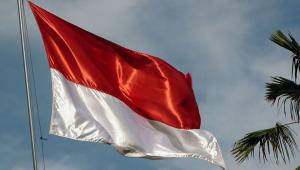Areas where the Asian country could improve its PFM included in budget forecasting and internal audit, the Public Expenditure and Financial Accountability assessment released yesterday found.
“The downturn in economic growth underscores the importance of the overall public financial management reform agenda to ensure that the delivery of public services continues to function effectively,” the report said.
It noted Indonesia had experienced strong economic growth and steady poverty reduction over the past decade, with growth reaching 5.6% in 2001-12. But this had slowed to 4.8% in 2015 and 5.1% in 2016.
The pace of poverty reduction also began to stagnate to around zero in 2015 and inequality had risen from 30 points in 2000 to 41 points by 2014.
Indonesia had made great strides in better reporting public finances and making them more transparent, the report also said.
But, it added, the monitoring of its systems performance should be further strengthened.
Sri Mulyana Indrawati, minister of finance, said: “We continue to carry out critical reforms in public financial management and these reforms are leading to results.
“We are confident that further reforms will lead to a better value for money through stronger public finances and improved service delivery.”
Earlier in the week, she vowed to continue with the country’s programme of financial reform to protect it from economic shocks caused by the current political climate.
This “atmosphere will continue to colour the global economy” and could have “unfeasible impacts”, the minister said.
She explained tensions between nations in Asia, such as North Korea and South Korea, Saudi Arabia and Iran, continued to effect countries in the region.
She said the economic reforms in the country, which were started 20 years after the financial crisis in 1998, were “born to build a new foundation for the Indonesian economy”.
They included changes to the laws of finance, treasury, audit board and central banks, with an aim to build an economic system that is more transparent and accountable.
The World Bank report said there are still some weaknesses in Indonesia related to the allocation of resources and the delivery of public services.
It said that these were areas that still need reform efforts to “realise full potential”.
Rodrigo Chaves, World Bank country director for Indonesia and Timor-Leste, said: “Collecting more and spending better is integral to Indonesia’s efforts to enhance its public services and deliver more inclusive and sustainable development.”
The report was prepared by the Indonesian government, with support from the World Bank and other international development partners.
It covers institutions receiving budget allocations from the central government, including ministries and agencies, public corporations and local governments.
The report covers the fiscal years from 2014 until 2016.
PEFA is an international methodology for assessing PFM performance, by providing a framework for assessing and reporting on the strengths and weaknesses of PFM.













